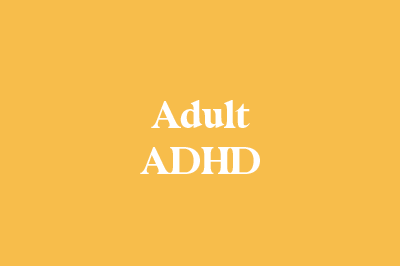
Our Specialties
Remember: Your therapist works for you, not the other way around. You deserve a provider worthy of your trust (and financial investment) who can create a shame-free space for you to talk (or not talk) about these topics as appropriate.
Click below to read more about that specialty.
People of Color
People of color experience daily oppression, which affects their stress level, ability to function, and overall feeling of well-being. Systemic racism has a direct impact on a community’s mental health. Each of our therapists understands the impact of racism, systemic oppression and microaggressions, and uses an intersectional framework to work with you towards healing.

Queer/LGBTQIA+
We provide a space that challenges heteronormative dynamics by working with you to explore and validate the unique intersectionalities that encompass the queer community. We can help you address the issues surrounding homophobia, transphobia and other kinds of prejudice and discrimination that impact your self-esteem and ideas of self as an QTPoC/LGBTQIA individual. We understand the unique challenges that can arise within relationships when having to cope with negative messages and policies that affect day to day living and self-acceptance. Our therapists use Affirmative therapy, an approach designed to affirm and support the needs of LGBTQ+ clients, to help you navigate personal relationships (romantic, platonic, familial, etc.) as well as how to interact with the immediate and larger community.
Life Transitions
Major life changes can be challenging and can lead to stress, anxiety, or depression. Transitions such as altering a relationship status, losing or changing one’s career path or job, beginning or ending a vocational or educational program, moving, growing a family, or aging can disrupt one’s feeling of safety and self-identity. Our therapists can help you adjust to change and discover new coping strategies that allow you to better adapt in uncertain or difficult times.
Borderline Personality Disorder
We believe that a diagnosis of Borderline Personality Disorder, or any other personality disorder, does not mean your personality is flawed; it simply means you have a unique and different way of relating to the world. General lack of understanding from others can cause distress and impair functioning in many areas of life. Our therapists are trained in effective, evidence-based approaches to help you cope, including Dialectical Behavior Therapy (DBT), Acceptance Commitment Therapy (ACT), and Schema-Focused Therapy.

Social Justice-Informed Therapy
Social justice and anti-oppression values deeply inform our therapy approach. We engage in regular training on trending issues in order to stay up-to-date on topics like anti-oppressive facilitation, and social justice informed and LGBTQ+ affirming therapy. Our goal is to use the most appropriate and relevant approaches to address the ways our clients are surviving systems of domination, like white supremacy, colonialism, and racialized capitalism. We help you articulate and address internal frustrations created by misinformation and lack of social empathy, as well as give you practical strategies to deal with these challenges.
Gender Affirmative Therapy
Many of our clients come to us looking for a therapist with whom they can feel safe to explore or affirm their gender, or help them through a gender transition. We understand you and can offer you a safe place to explore your gender at your pace, using language that feels congruent with who you are. We firmly believe no gender identity, expression, or experience is any more valid, ‘natural,’ or ‘normal’ than any other.
Transracial Adoptees
Joel Kim Booster: “I Fully Knew I Was Gay Before I Knew I Was Asian”.
While most adoptees face questions about their identity and roots, children adopted into transracial families face additional struggles of racial identity, belonging, and social prejudice. Our therapists offer a safe, nonjudgmental environment where you can actively explore, critique, and examine the impact of adoption and transracial identity on your development. Therapy offers a structure through which you may begin the reparational process of examining your adoption stories (including pre-placement circumstances), identifying your attachment strategies, integrating the realities of your differing racial/ethnic heritages, and initiating or adjusting to reunion scenarios.
Asian-American Mental Health/ Race & Cultural Identity
A person’s race and cultural origins are something to be celebrated, not ostracized or ignored. We acknowledge your unique cultural identity and help you achieve balance and acceptance.
Navigating the world in this political climate as Asian Americans can feel akin to being “on display,” yet invisible. Discussions on race and racism in the U.S. tend to focus on the black and latinx community. Despite problematic comparisons to belonging to a “model minority” or “honorary white” group, racism does not escape you. In addition, unique issues arise as an Asian-American―you may feel you have to hide a part of yourself from your parents. Maybe it’s your non-Asian significant other, or maybe it’s the fact that you’re queer. We understand the complexity of navigating different values systems and can help you along the journey.
Kink and Poly
Fig Tree is a place where you can work on whatever is getting in the way of being your most authentic self, without worrying about being judged for your lifestyle (or love style). We work with people who identify as or experience polyamory, BDSM, consensual non-monogamy, and various other sexually diverse relationships. Each relationship is different, and we look forward to knowing about yours and helping you to have your best, most secure connections.

Adult ADHD
ADHD does not look the same in everyone. Many adults who struggle with ADHD, especially women and non-binary people, tend to be less hyperactive and impulsive, and more disorganized, scattered, forgetful, and introverted. You could be anxious or depressed for years, because of the sense of not being able to hold everything together. You may be confused and ashamed by your struggles, and internalize your trouble prioritizing, organizing, coordinating, and paying attention as character flaws.
Working with a behavioral therapist can help to address specific behaviors, such as structuring your time, establishing predictability and routines, and increasing positive outcomes. Fig Tree therapists use Cognitive Behavioral Therapy (CBT) and Dialectical Behavior Therapy (DBT). to help you change behavior patterns while addressing related symptoms such as depression or anxiety.










